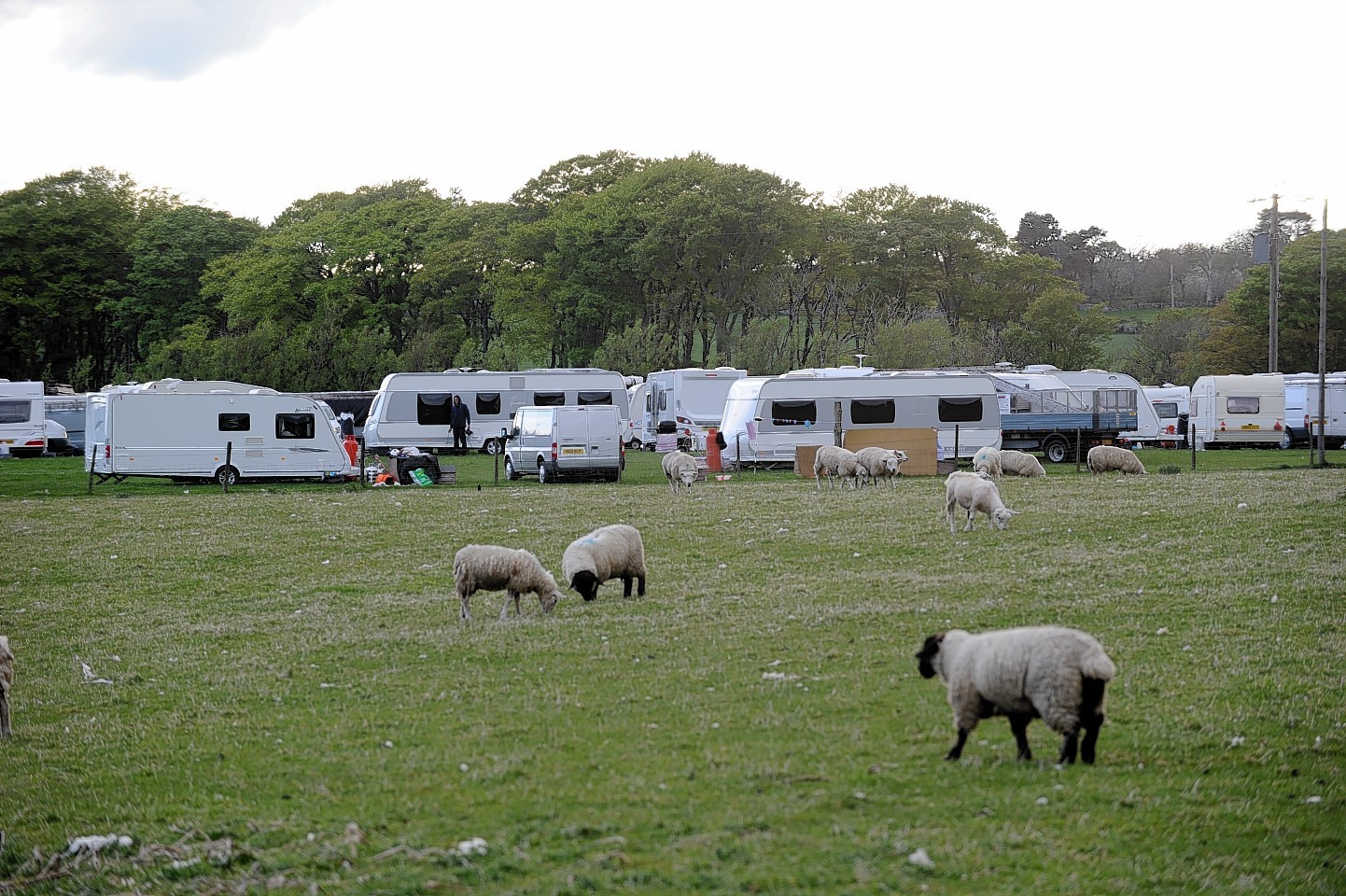Aberdeen City Council’s ruling administration has insisted it will not give up on plans to establish a bylaw to deter unauthorised gypsy-traveller encampments.
The Scottish Government rejected moves from the Labour-led coalition to introduce a ban on overnight camping in designated areas such as public parks in October.
However, council leader Jenny Laing yesterday said the matter will not be dropped.
She told a full council meeting the administration wants to use a ban imposed at the Loch Lomond and the Trossachs National Park as a yardstick.
A Labour motion asking the chief executive to hold talks with the park authority and report back on what options might be open to the council in Aberdeen was voted through by 27-13.
However, the Loch Lomond and Trossachs National Party Authority insisted afterwards that the situation at the beauty spot was “very different” from that experienced in Aberdeen.
The city has been dogged by problems with illegal camps in recent years, leading to warnings of a “powderkeg” situation between the travelling and settled communities.
Mrs Laing said the difficulties were largely due to the north east’s “buoyant” local economy.
She added: “We need a bylaw, in particular, to protect our public places and spaces. Therefore, our disappointment in the Scottish Government’s unwillingness to support the bylaw is obviously at the forefront of our minds.”
Mrs Laing noted that the Scottish Government was in the midst of a review of the guidelines on the management of unauthorised encampments, although there is no “deadline” in place for that work to be completed.
Housing Minister Margaret Burgess said in a letter to Mrs Laing said the council had not proved it had taken “adequate action” to find accommodation for travellers.
The proposal would also be “potentially discriminatory” on the minority group, Mrs Burgess said.
The main opposition SNP group tabled an amendment to take no further action on the bylaw plan, which Nationalist group leader Callum McCaig described as a “fig leaf to detract from inaction on the delivery of halting sites”. Under existing law, the Trespass (Scotland) Act 1865, camps can be moved on, provided there is somewhere for them to go.
SNP councillor Kirsty Blackman also pointed out that Loch Lomond provides 338 camping pitches, while the bylaw only applies to a nine-mile stretch of land. She added: “They have demonstrated very clearly that there was a specific problem in a specific area and that this was a reasonable measure to bring in”.
A spokeswoman for Loch Lomond and The Trossachs National Park Authority said: “The situation in the National Park is very different to the one Aberdeen City Council is facing, which relates to travellers.
“We have a statutory responsibility to strike a balance between conservation, rural development and visitor experience in what is one of Scotland’s most sensitive and visited natural landscapes.
“The bylaws at East Loch Lomond referenced by the Council at today’s meeting were introduced after many years of trying other approaches to tackle antisocial camping in our most pressured visitor hotspots and address pressure on the wider countryside, and in conjunction with investment in dedicated camping facilities to promote more sustainable levels of camping in the National Park.
“Despite these differences, we would be happy to share our experience of this process to assist where relevant to Aberdeen City Council’s particular issues.”
Labour Group spokesman Willie Young welcomed the offer of assistance. He said: “It is gratifying to see that those involved within the Loch Lomond bylaws are willing to share their experiences with us. Residents in Aberdeen will reflect upon the experience in Loch Lomond has had with anti social behaviour and how a bylaw such as that obtained by Loch Lomond could help Aberdeen tackle similar problems. It is now time for the Scottish Government to act and give Aberdeen this much needed bylaw”
